When it comes to the best thread count for sheets, we often think that the higher the thread count, the better. But it turns out, this isn't actually the case, and high thread counts are actually more of a marketing gimmick than an indicator of quality bedding.
To help you choose your perfect bedding, we're sharing a thread count guide that will explain everything you need to know about thread count including what thread count actually means, whether or not it's important, and what actually is the best thread count for sheets.
What is thread count?
Thread count is a measure of the number of threads per square inch of fabric in sheets, pillowcases, and other bedding items. It is a key factor in determining the quality, feel, and comfort of sheets. Generally, the higher the thread count, the softer and more durable the sheets will be.
Thread count is determined by counting the number of vertical and horizontal threads in a one-inch square of fabric. The resulting number is the thread count. For example, a thread count of 200 means there are 200 threads in a square inch of fabric.
When buying sheets, it is important to look for a higher thread count. Thread counts range from around 120 to 1,000 and higher. Generally, a thread count of 300 or above is considered to be good quality.
The type of thread used also affects the quality of the sheets. Cotton is the most popular and highest-quality fabric for sheets, followed by linen and silk. High-quality sheets tend to have a higher thread count than other fabrics.
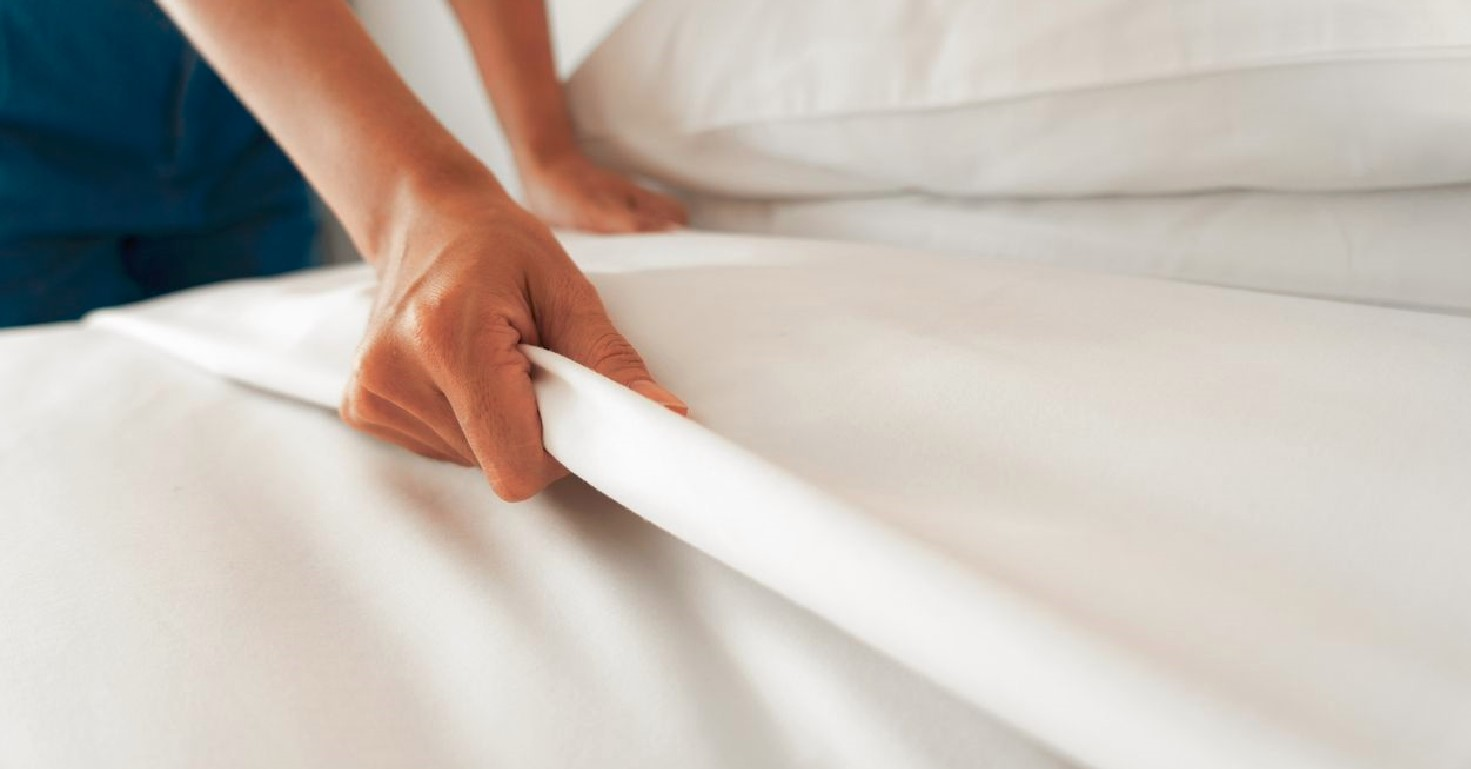
But are high thread count sheets really better?
We're often told that a higher thread count is better because it means the fabric is softer. If you can fit more yarns into a square inch, it means the fibers must be a lot finer, creating a softer fabric.
To an extent, a high thread count can be good, but there are a few things to consider. The first is that the quality of the yarns and multi-ply yarns is more important than the number of yarns. Just because there is a high quantity of yarns, doesn't mean the quality of the fibers is high.
The second is that different weaves will have different thread counts, so simply using a thread count number doesn't give you an accurate picture.
And finally, you should be wary of really high thread counts (we see you, 1500 thread count sheets!) because in this case, individual fibers are often split to increase thread count, making the overall fabric weaker.
When does thread count matter?
The only time thread count should even factor into your bedding decision making process is with cotton sheets. For anything other than cotton bedding, thread count is generally just a marketing gimmick. For polyester bedding, for example, fibres can be manufactured to be made so fine that they can advertise a very high thread count, but the quality is likely not there.
In the case of linen bedding, the fibers are generally thicker, so the bedding will likely have a lower thread count even with very high-quality bedding.
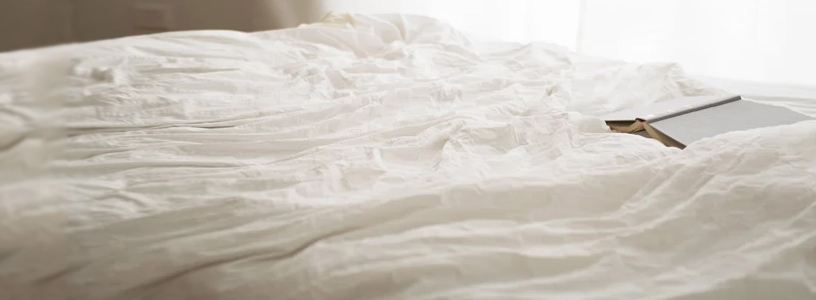
What is the best thread count for sheets?
If we are talking about cotton bedding, thread count can still be a factor in choosing good bedding, but again, higher isn't always better. We recommend a thread count between 300-600, depending on the weave, and anything above that can be chalked up to a marketing ploy and avoided, even for the highest thread count.
Anything Above a 500 Thread count is Inflated to Mislead You
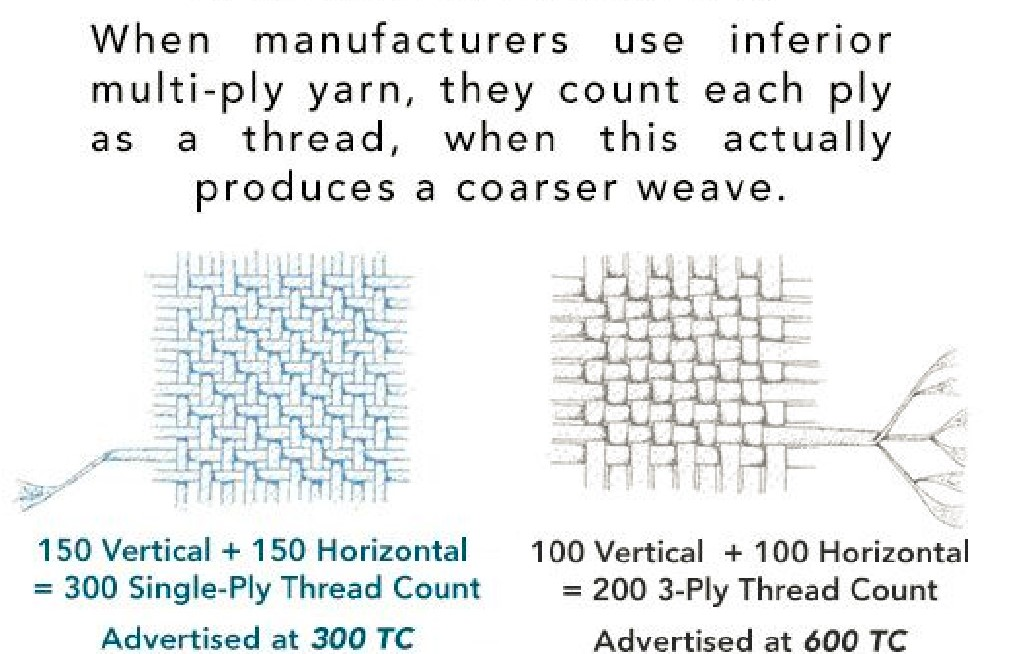
When it comes to buying sheets, thread count is often used as the main factor to determine quality. Many people believe that a higher thread count means a higher quality of fabric and comfort, however, this may not always be the case. Anything above a 500 thread count is often inflated to mislead buyers into thinking they're getting a higher-quality product. In reality, a thread count above 500 is usually not necessary and can be more of a marketing ploy than an indication of quality. Additionally, many companies use a combination of thinner and thicker threads to increase the thread count, resulting in an uncomfortable and stiff fabric. When shopping for sheets, look for a thread count of 300-400 for the most luxurious and comfortable fabric.
Sateen sheets, Tencel sheets & Percale sheets thread count
Sateen sheets and Tencel sheets both offer a luxurious softness and comfort for your bedding needs. In terms of thread count, sateen sheets typically have a higher thread count, ranging from 300 to 600.
Tencel sheets, on the other hand, have a thread count ranging from 250 to 400. The higher thread count of sateen sheets makes them more dense, which can make them more durable in the long run. Tencel sheets, however, are known for their breathability and moisture management, which can help keep you cool and comfortable during sleep. Ultimately, the choice between sateen sheets and Tencel sheets comes down to personal preference.
Percale sheets are renowned for their crisp and cooling feel, making them an ideal choice for hot summer nights. The thread count of a percale sheet plays an important role in the overall quality and feel of the sheets. Thread count refers to the number of vertical and horizontal threads per square inch of fabric, and percale sheets typically have a thread count between 200 and 800. Sheets with a higher thread count tend to be softer, more durable and more breathable than those with a lower thread count. Generally, percale sheets with a thread count of 300 to 400 are considered good quality, while anything above 500 is considered to be of premium quality.
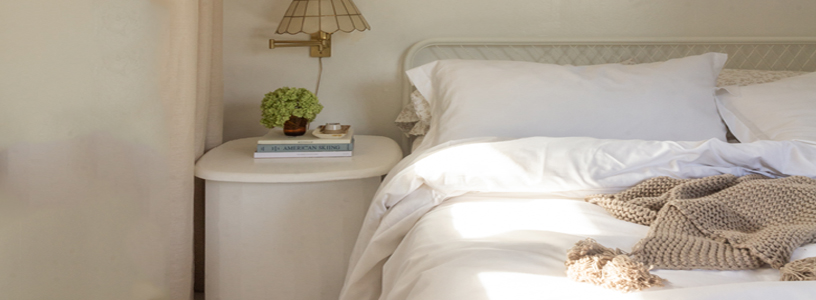
How to choose the best bed sheets
By now, it's probably pretty clear that thread count isn't an important factor in the quality of your bedding, so what should you look for when choosing the best bed sheets?
The number one thing to look for when you're choosing bedding is the quality of the fabric. This means looking less at the thread count and more at the material itself.
At Delara, all of our bedding is made from Fair Trade, 100% organic cotton, so you know you're getting bedding made from an ultra-high quality, eco-friendly materials. Rather than prioritizing thread count, we focus on making our bedding out of clean materials that are soft to the touch and easy on the environment.
The result? Soft, cozy, breathable bedding that's free from the chemicals you'll find on most commercially produced bed sheets.
Conclusion
When it comes to buying the best bed sheets, thread count is not the most important factor. Instead, you should look at the quality of the fabric, such as the type of yarn used, the weave of the fabric, and the overall softness of the sheets. At Delara, we focus on making our bedding from Fair Trade, 100% organic cotton, so you know you're getting the highest quality bedding. Our sheets are soft to the touch, breathable, and free from chemicals, giving you the perfect balance of comfort and quality. bedding industry wrinkle resistant.



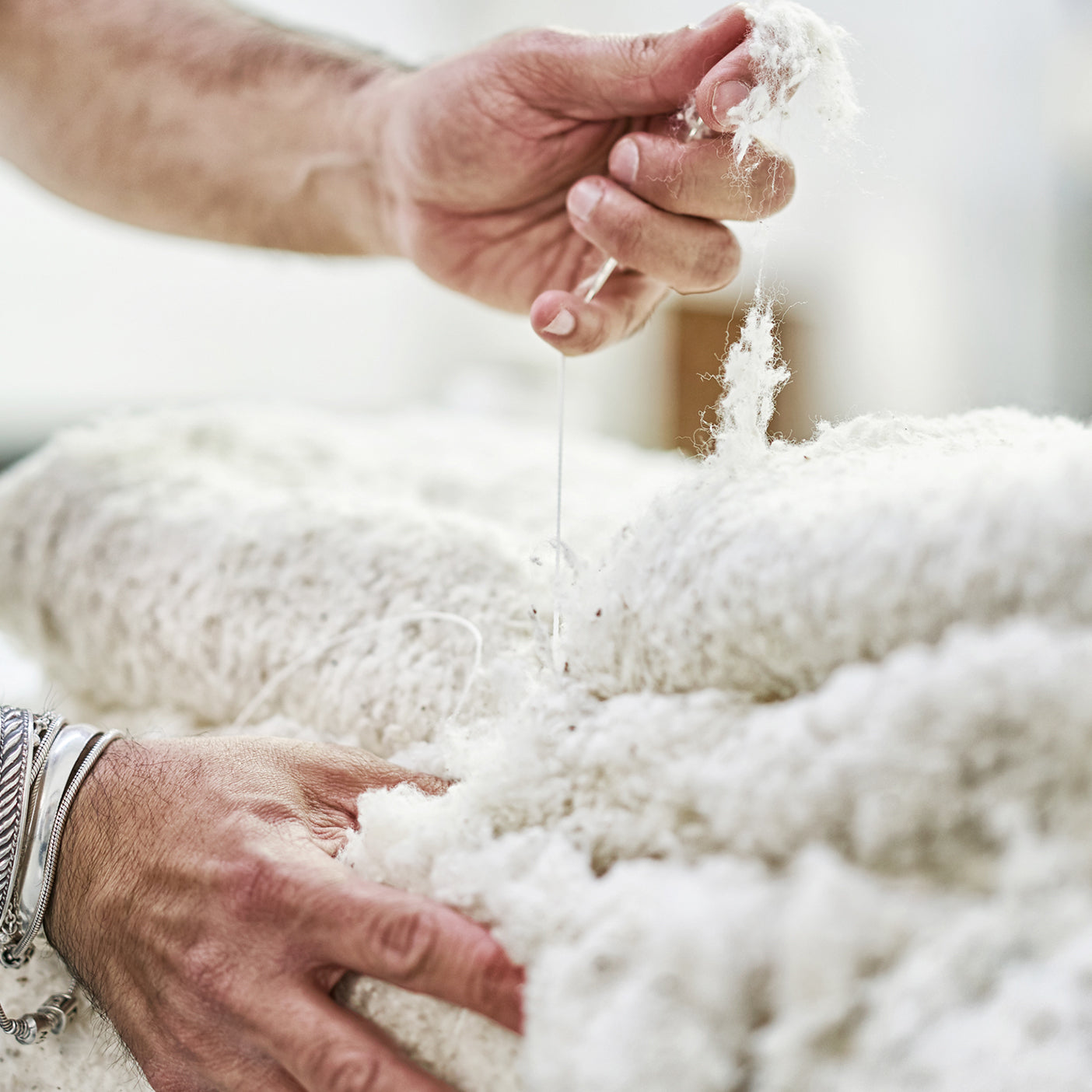
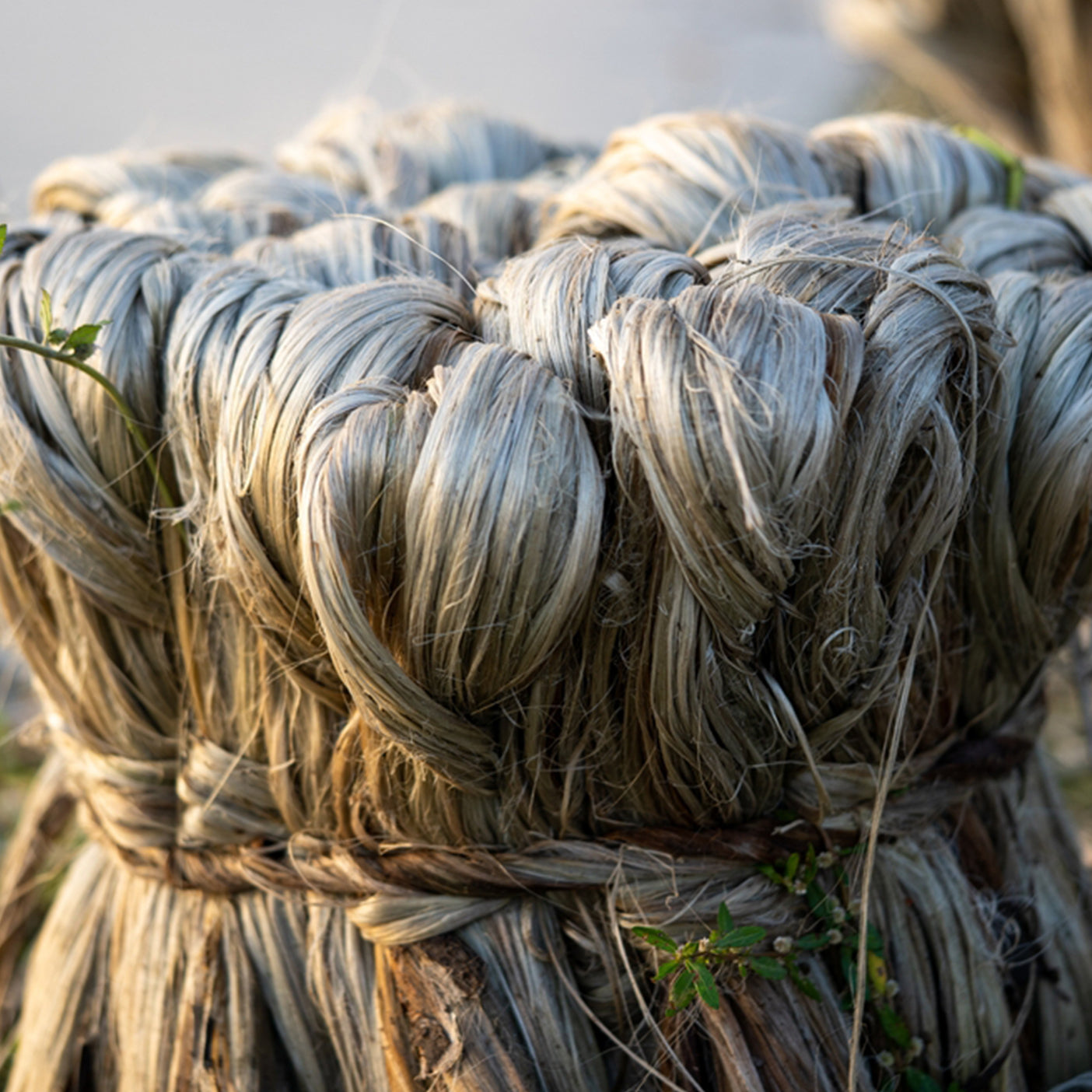
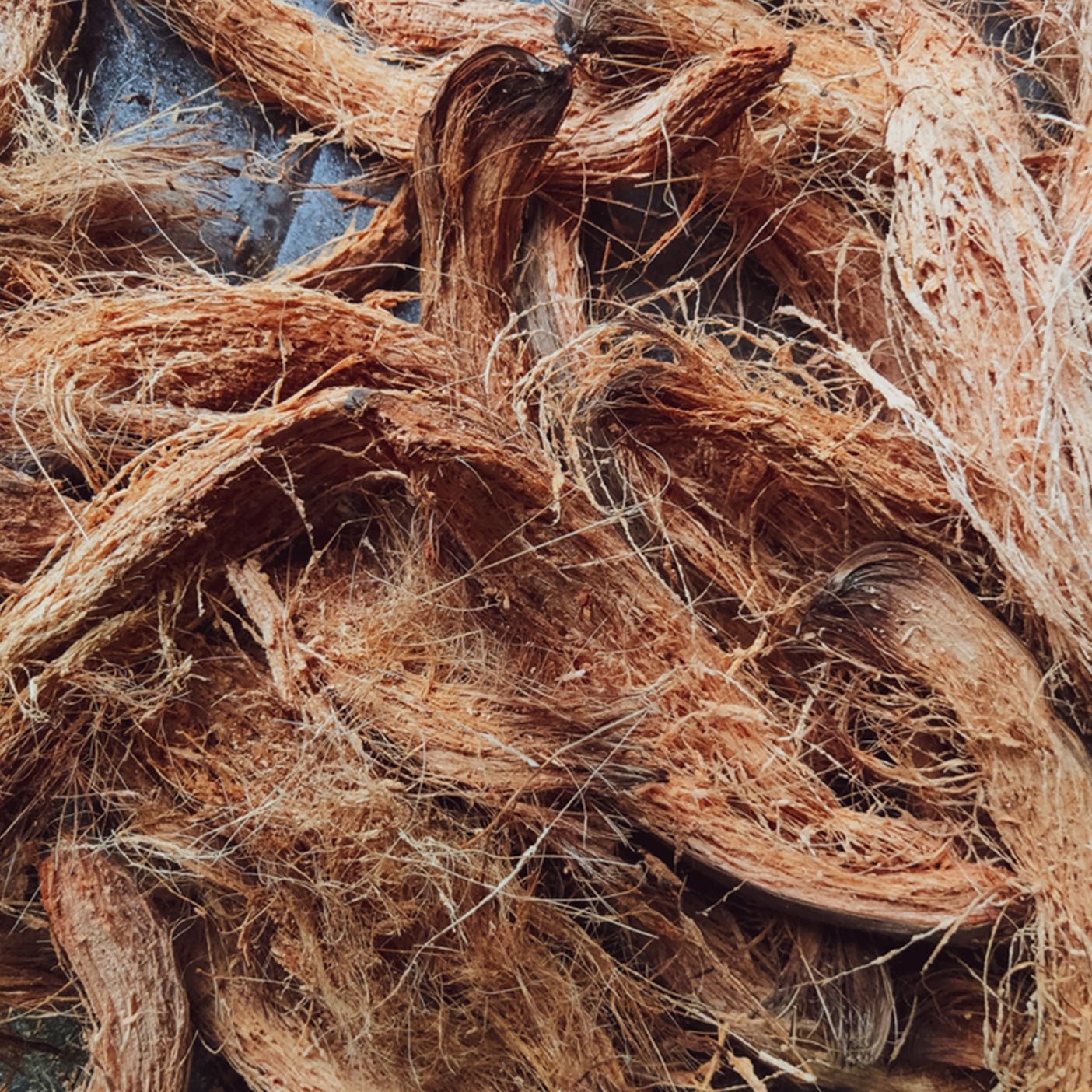

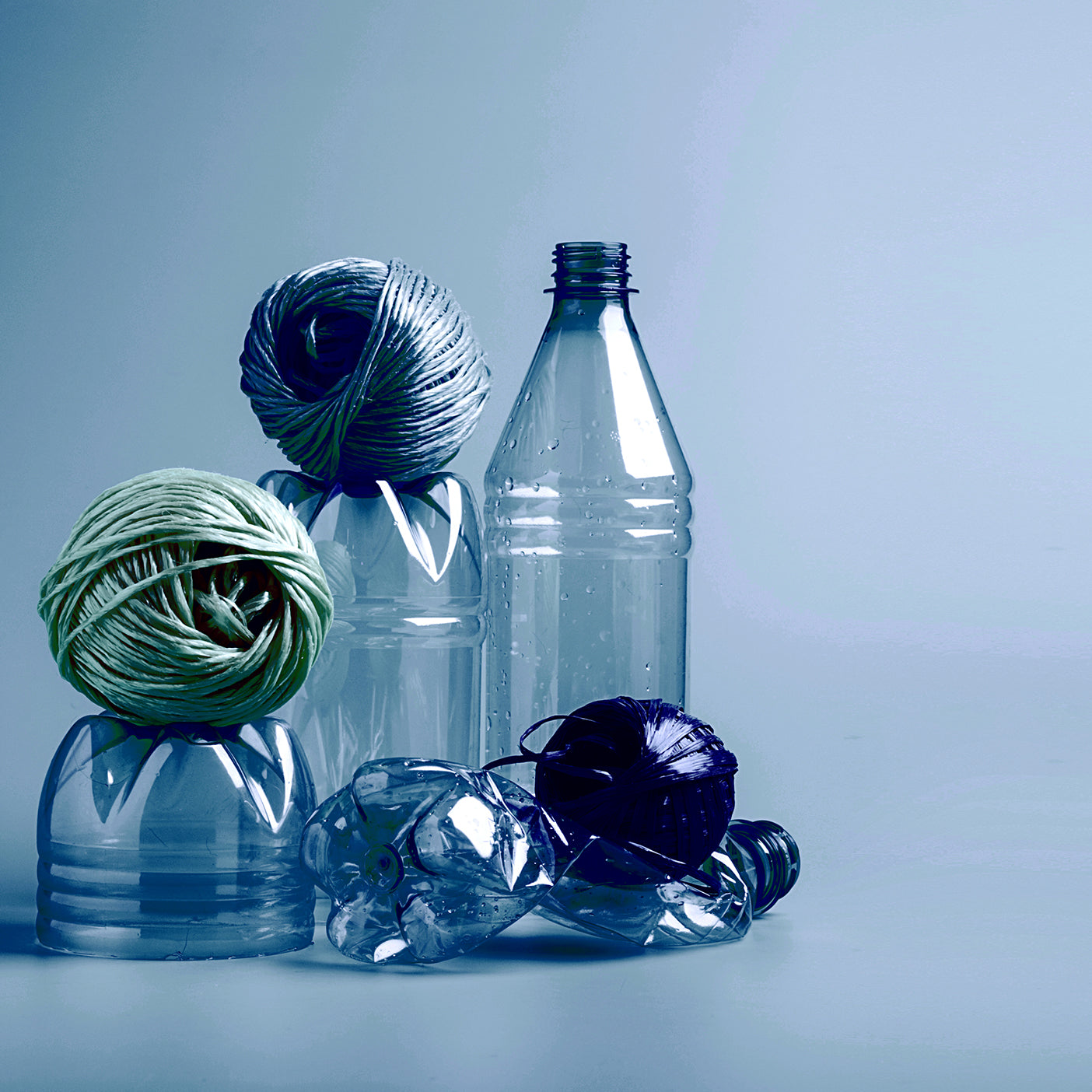
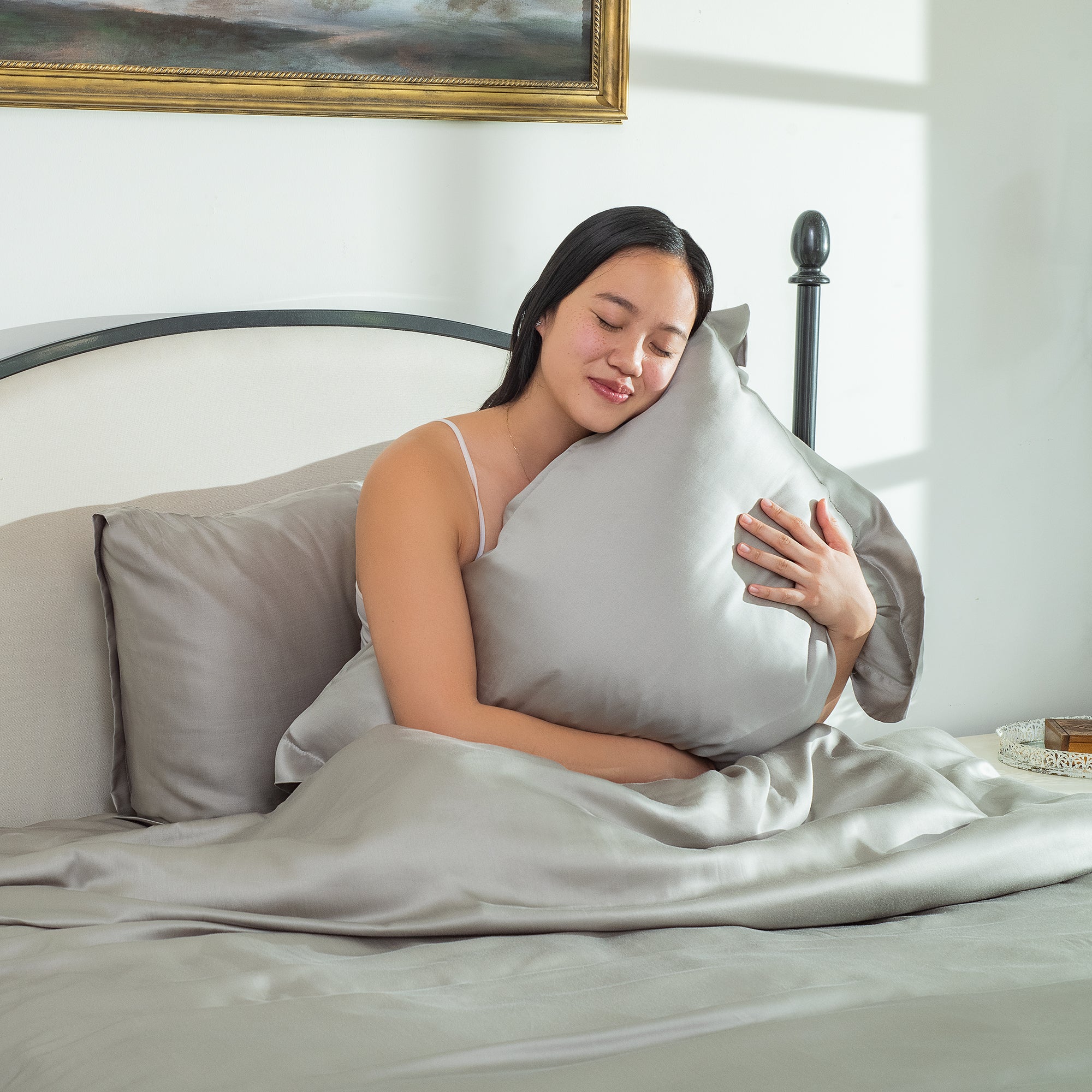
Leave a comment